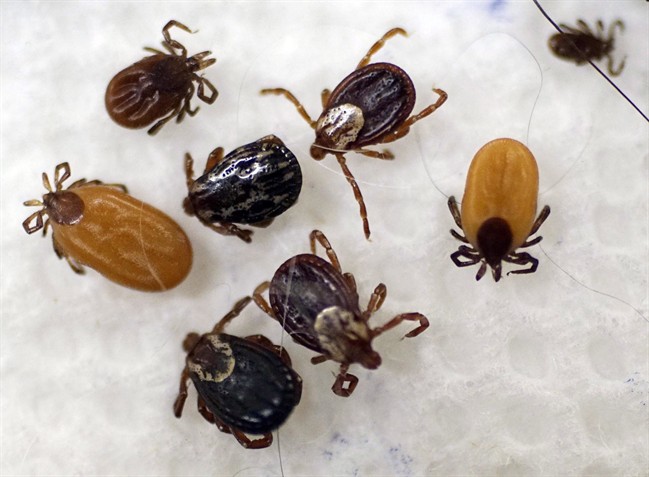It’s been a frigid start to the new year across Canada, with record-breaking temperatures, winter “bomb cyclones” and freezing rain.

But as the temperature drops and people grab their parkas to help brave the cold, what does the deep freeze mean for insects?
If you’re hoping the colder weather means fewer bugs will be biting you around the campfire this summer, you’re not in luck. Insects in this geography were designed to survive subzero temperatures, according to Adam Oliver Brown, a professor of biology at the University of Ottawa.
WATCH: Why mosquitoes love to bite you

“Insects, like most animals, can adapt to cold temperatures,” Brown said. “Mosquitoes can stay in water at the bottom of a lake pond, and it gets really cold. That is true for a lot of insects. Whether it’s eggs, larvae, pupae or adults, they burrow in nooks and crannies, and even in our homes.”
What impacts insect populations is not how cold it gets in the winter, but the variation of temperatures, he said.

Get daily National news
Fewer insects is not always a good thing
Variation in temperatures, which can be brought on by climate change, wreak havoc on insects’ hibernation, according to Brown.
“Once insects warm up and come back to life in the spring, it’s very difficult to go back into hibernation mode,” he said.
But Brown said the change in temperature has to involve “prolonged” fluctuations for this to destroy insect populations. “So a couple of weeks of thawing, followed by freezing temperatures, and then warm weather,” he said.
If this “swing” in weather does happen, there will probably be fewer insects in the summer. But Brown said this isn’t anything to celebrate.
“We are plagued by mosquitoes and ticks, but they do play an important ecological role, especially with the food chain,” he said.
These pesky insects are essential food sources for fish, bats and birds. “So reducing insect numbers, even ones we don’t like, can have devastating impacts on the ecosystem,” Brown said.
WATCH: Climate change affecting bee population
Where do insects go in the winter?
As the temperature drops, insects survive as eggs, larvae, pupae and fully-grown adults and find shelter in soil, ponds, logs, trees, and leaf litters.
Blankets of snow also act as insulation that help a bug survive the winter, according to the Smithsonian Institute.
For example, ticks are able to burrow under leaf litters for the winter and find a warm spot to hang out until the spring, according to Popular Science. The snow then adds an extra layer of insulation for the ticks.
Some insects also survive the winter by lowering their metabolism and going into a state known as diapause. Brown said these bugs make their own antifreeze, which helps them survive below-freezing temperatures.
WATCH: Study suggests insects develop thicker skin to beat insecticides

And then there are the insects that avoid the cold altogether and migrate south for the winter — just like birds. An example of this is the monarch butterfly, which spends all winter hibernating in Mexico and some parts of Southern California.
- Donald Trump claims B.C.’s ‘very large faucet’ could help California’s water woes
- Canada must speed up progress to hit its 2030 emissions target: report
- U.S. TikTok ban case pits free speech vs. national security. Which will win?
- A final, tragic text from doomed Titan sub revealed at Coast Guard hearing








Comments